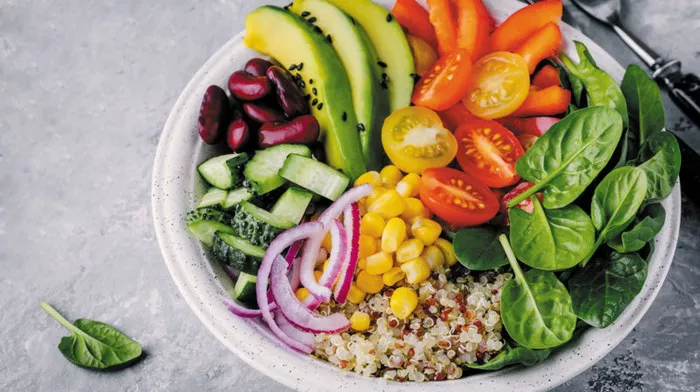A 900-calorie diet is a very low-calorie diet (VLCD) that should only be followed under strict medical supervision and for a limited duration. Such diets are usually prescribed to individuals with obesity or those needing significant weight loss for health reasons. It is essential to approach a 900-calorie diet with caution and consider the potential risks and benefits. When following such a restrictive plan, it becomes crucial to ensure that the limited calorie intake provides essential nutrients for overall well-being. In this article, we will explore what to eat on a 900-calorie diet, highlighting the importance of balanced nutrition and addressing potential concerns.
Understanding a 900-Calorie Diet
Before delving into the specific foods to include in a 900-calorie diet, it is essential to understand the context and potential implications of such a low-calorie intake.
What is a 900-Calorie Diet?
A 900-calorie diet is a form of very low-calorie diet (VLCD) that significantly restricts daily calorie intake to accelerate weight loss. VLCDs are typically used in medically supervised settings and may involve the use of meal replacement products to ensure adequate nutrient intake. These diets are not intended for long-term use and should only be followed under the guidance of a qualified healthcare professional.
Who Might Consider a 900-Calorie Diet?
A 900-calorie diet is not suitable for everyone and is generally reserved for individuals with severe obesity or specific medical conditions that necessitate rapid weight loss. It may be recommended for individuals preparing for weight loss surgery or those requiring significant weight loss to improve other health conditions.
Potential Risks and Concerns
While a 900-calorie diet can lead to rapid weight loss, it also comes with potential risks and concerns:
Nutrient Deficiency: Severely restricting calorie intake can make it challenging to obtain essential nutrients, potentially leading to nutrient deficiencies and other health problems.
Muscle Loss: A very low-calorie diet may cause the body to break down muscle tissue for energy, leading to muscle loss.
Metabolic Changes: VLCDs can cause metabolic changes, slowing down the body’s resting metabolic rate, which can make weight maintenance challenging once normal eating resumes.
Gallstones: Rapid weight loss, especially in obese individuals, may increase the risk of gallstones.
Electrolyte Imbalance: A VLCD can lead to electrolyte imbalances, which may pose health risks.
Hunger and Discomfort: A 900-calorie diet can cause hunger, fatigue, and discomfort, making adherence difficult.
It is crucial to recognize that a 900-calorie diet is not a sustainable long-term solution for weight loss. Once the prescribed duration of the VLCD is complete, individuals must transition to a balanced and healthier eating plan to maintain their weight loss and overall health.
What to Eat on a 900-Calorie Diet
If you are under the supervision of a qualified healthcare professional and have been prescribed a 900-calorie diet, it becomes essential to ensure that the limited calorie intake provides adequate nutrition. Here are some guidelines on what to eat on a 900-calorie diet:
1. Consult with a Healthcare Professional
Before starting a 900-calorie diet or any other significant dietary change, consult with a qualified healthcare professional, such as a registered dietitian or a doctor. They can assess your health status, provide personalized guidance, and ensure that the diet plan meets your specific nutritional needs and health goals.
2. Emphasize High-Quality Protein
Protein is essential for maintaining muscle mass, supporting satiety, and preserving overall health. Include high-quality sources of protein in your diet, such as lean poultry, fish, tofu, legumes, and low-fat dairy products. These foods provide essential amino acids and nutrients while being relatively low in calories.
3. Incorporate Non-Starchy Vegetables
Non-starchy vegetables are rich in vitamins, minerals, and fiber, providing essential nutrients with relatively few calories. They can help bulk up meals, providing a sense of fullness and satisfaction. Include a variety of colorful vegetables such as leafy greens, broccoli, cauliflower, bell peppers, and zucchini.
4. Choose Whole Grains Wisely
Whole grains provide more nutrients and fiber than refined grains. Opt for whole grains such as brown rice, quinoa, oats, and whole-grain bread in moderate amounts. However, portion control is essential, as grains can contribute significantly to overall calorie intake.
5. Be Mindful of Fats
While fat is calorie-dense, it is still important to include small amounts of healthy fats in your diet. Focus on sources of monounsaturated and polyunsaturated fats, such as avocados, nuts, seeds, and olive oil. These fats offer various health benefits and can help improve nutrient absorption.
6. Limit Added Sugars and Sweets
Minimize or avoid foods and beverages high in added sugars and sweets, such as sugary snacks, candies, and desserts. These items provide empty calories and can cause rapid fluctuations in blood sugar levels.
7. Stay Hydrated
Drink plenty of water throughout the day to stay hydrated and support overall health. Water has no calories and can help control appetite. Avoid calorie-containing beverages, including sugary drinks and alcoholic beverages.
8. Consider Meal Replacements
Meal replacement products, such as shakes or bars, may be prescribed in a 900-calorie diet to ensure adequate nutrient intake. These products are formulated to provide essential vitamins and minerals while controlling calorie intake. However, it is essential to use them under the guidance of a healthcare professional and not as a long-term solution.
9. Monitor Nutrient Intake
A 900-calorie diet can make it challenging to meet all nutritional needs. Regularly monitor your nutrient intake and consider taking a multivitamin and mineral supplement to help bridge potential gaps in nutrients.
10. Be Mindful of Disordered Eating
Extreme calorie restriction can sometimes trigger disordered eating behaviors. Be mindful of your relationship with food, and if you find yourself struggling with your eating habits, seek support from a qualified mental health professional.
Conclusion
A 900-calorie diet is an extreme and restrictive approach to weight loss that should only be followed under the close supervision of a qualified healthcare professional. While such diets can lead to rapid weight loss, they also come with potential risks and concerns, including nutrient deficiencies, muscle loss, and metabolic changes. It is essential to prioritize balanced nutrition and overall well-being while on a 900-calorie diet. Always consult with a registered dietitian or doctor before embarking on any significant dietary changes to ensure that the plan aligns with your health goals and needs. If weight loss is a goal, consider adopting a more moderate and sustainable approach to ensure long-term success and improved overall health. Remember, health and well-being should always be the primary focus, and extreme measures should be taken with caution.
























